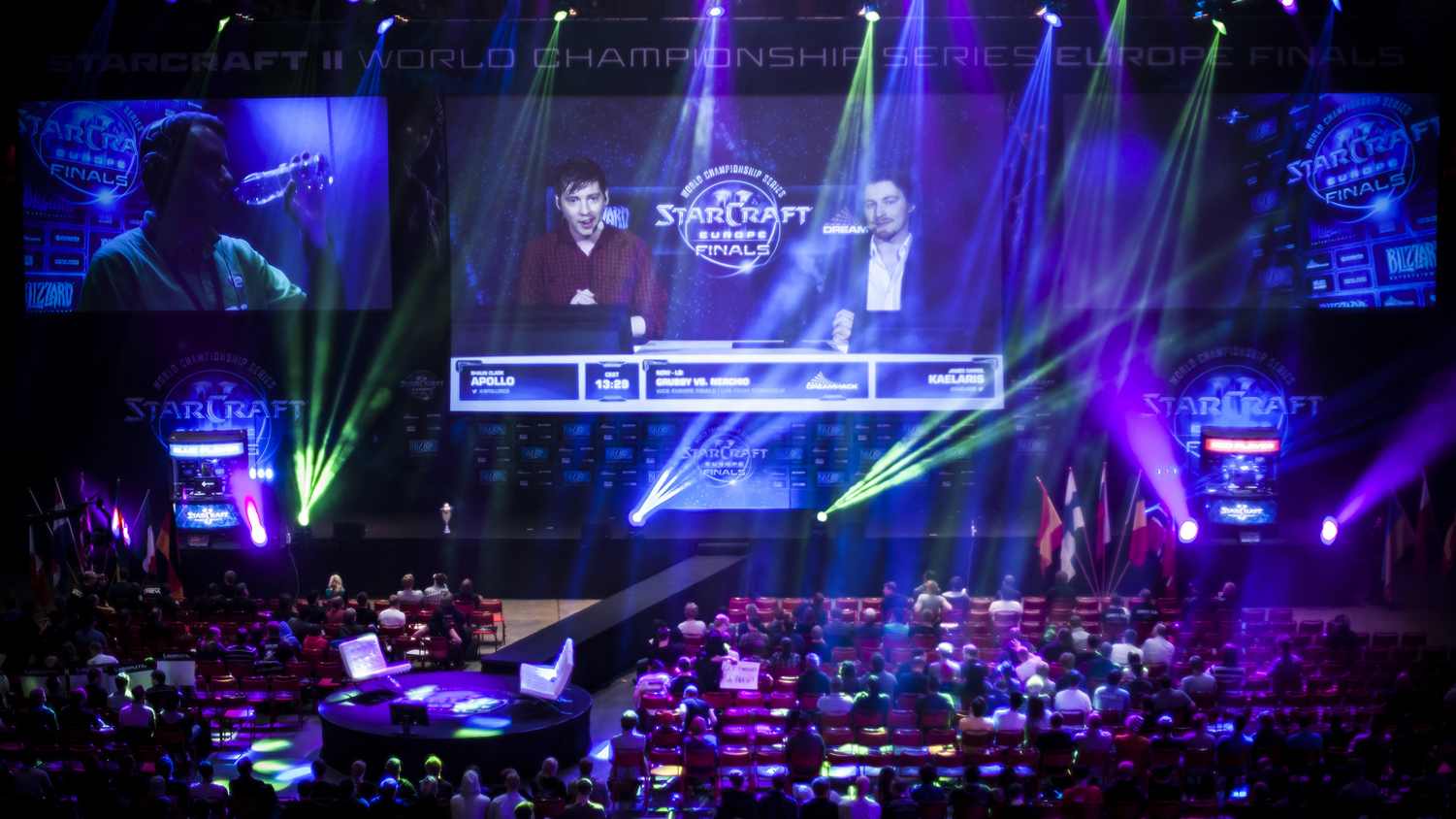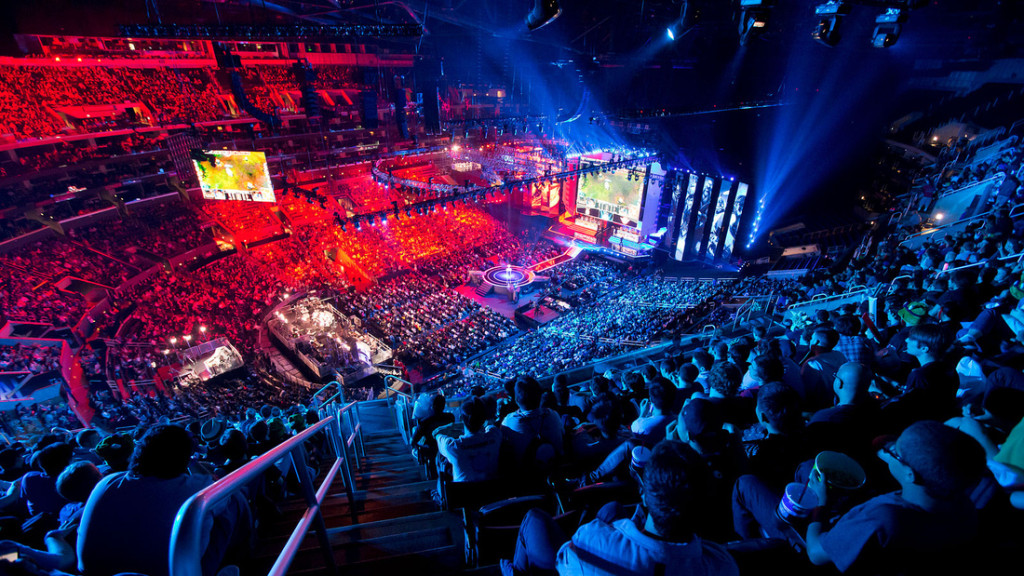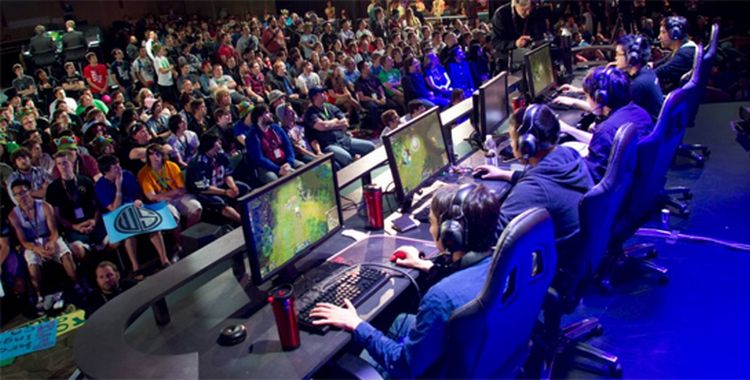World News – Last month, surrounded by around 45,000 fans in a Seoul stadium built for the World Cup, Samsung White put the final dagger into Star Horn Royal Club’s dreams, claiming a championship live on ESPN 3.
 It was a sign that “League of Legends” — as well as other video games like “Dota 2” and “StarCraft II” — are finally gaining legitimacy as e-sports.
It was a sign that “League of Legends” — as well as other video games like “Dota 2” and “StarCraft II” — are finally gaining legitimacy as e-sports.
To outsiders, a game like “League of Legends” might look like a cartoon filled with explosions, but to its 67 million monthly users, it’s like watching chess played in hyper-speed. Fans travel to competitions around the the world to cheer on their favorite players, like Dade, the Peyton Manning of the “League of Legends” world.
But with increased popularity comes headaches that traditional sports have to deal with. That includes gambling.
“E-sports is definitely our fastest area of growth,” Phil Hudson of Pinnacle Sports, an online betting site, told NBC News. “It’s quite big in Asia and Eastern Europe, but e-sports is really a phenomenon across the world.”
It’s not nearly as popular as soccer or American football. Still, e-sports have attracted more than 350,000 bets on Pinnacle’s website this year, making it the company’s eighth most popular sport. (Sorry, golf).
Since 2011, the year when Pinnacle began accepting bets on e-sports, the volume of trades placed on video game matches has doubled every year, Hudson said. The company has hired a team of eight e-sports traders responsible for setting lines and wagers.
Pinnacle isn’t the only one. Datbet and E-Sport Bets also take bets from all over the world — although none officially from the United States.
Betting on any sport, including e-sports, is illegal in the United States, except for in some capacity in Nevada, Delaware, Oregon, Montana and, pending a legal battle, New Jersey. (The exception in most states is horse racing).
That explains why most sports betting sites are based in places like Curaçao, where Pinnacle is officially headquartered. Hudson, from the company’s marketing office in London, told NBC News that he wanted to be “explicitly clear” that Pinnacle Sports does not take “bets from the U.S.”
Still, it’s clear that a lot of people are taking betting on e-sports, most often on “Dota 2” and “League of Legends” matches.
Where there is gambling, there is the temptation for players to get a cut of the action. The stakes are relatively small in e-sports — the five-player team that won the 2014 “League of Legends” championship took home $1 million in prize money, or less than soccer superstar Cristiano Ronaldo gets paid for a single game.
So, while pro e-sports leagues don’t have to worry about $15 billion international match-fixing scandals, it’s still a concern.
In March, “League of Legends” player Cheon “Promise” Min-Ki reportedly fell 12 stories and went into a coma after allegations of match-fixing surfaced. While the circumstances around the incident are unclear, he did reference the allegations in a Facebook message before his fall. In 2010, the BBC confirmed that complaints of match-fixing in “StarCraft II” had been reported to Seoul police.
That is bad news for a sport that is trying to establish itself.
“It could devastate a sport,” I. Nelson Rose, an expert on gambling law at Whittier Law School, told NBC News. “It could prevent it, or at least delay it by years, from being generally accepted.”
“But, having said that, once the sport is established, I think the world changes.”
The Electronic Sports League (ESL) wants to become established. It runs competitions across the globe in “League of Legends,” “StarCraft II,” “Counter-Strike” and more.
(Riot Games, who held the previously mentioned “League of Legends” championship in October, did not respond to interview requests from NBC News).
“We do not allow betting on games of a league the betting player is taking part in, and betting against yourself or your own team leads inevitably to disqualification,” Anna Rozwandowicz, head of communications for ESL, wrote to NBC News, adding that the league was “striving to make this a rule in all leagues not only run by us, but to make it an industry standard.”
Regardless of the sport, it’s usually up to the leagues to monitor and prevent cheating, Rose said, because the Internet has basically allowed anyone to open an online “casino” with little regard for where its bets are coming from.
“It’s almost 100 percent on the leagues,” Rose said. “It’s almost impossible for states, and even hard for the federal government, to enforce gambling laws outside of the United States.”
Talented gamers are now privy to college scholarships, die-hard fans, and even U.S. visas that only athletes like basketball and hockey players had access to before. As e-sports gain popularity, it turns out they could face increased scrutiny as well.
BY KEITH WAGSTAFF, NBCNews.com

